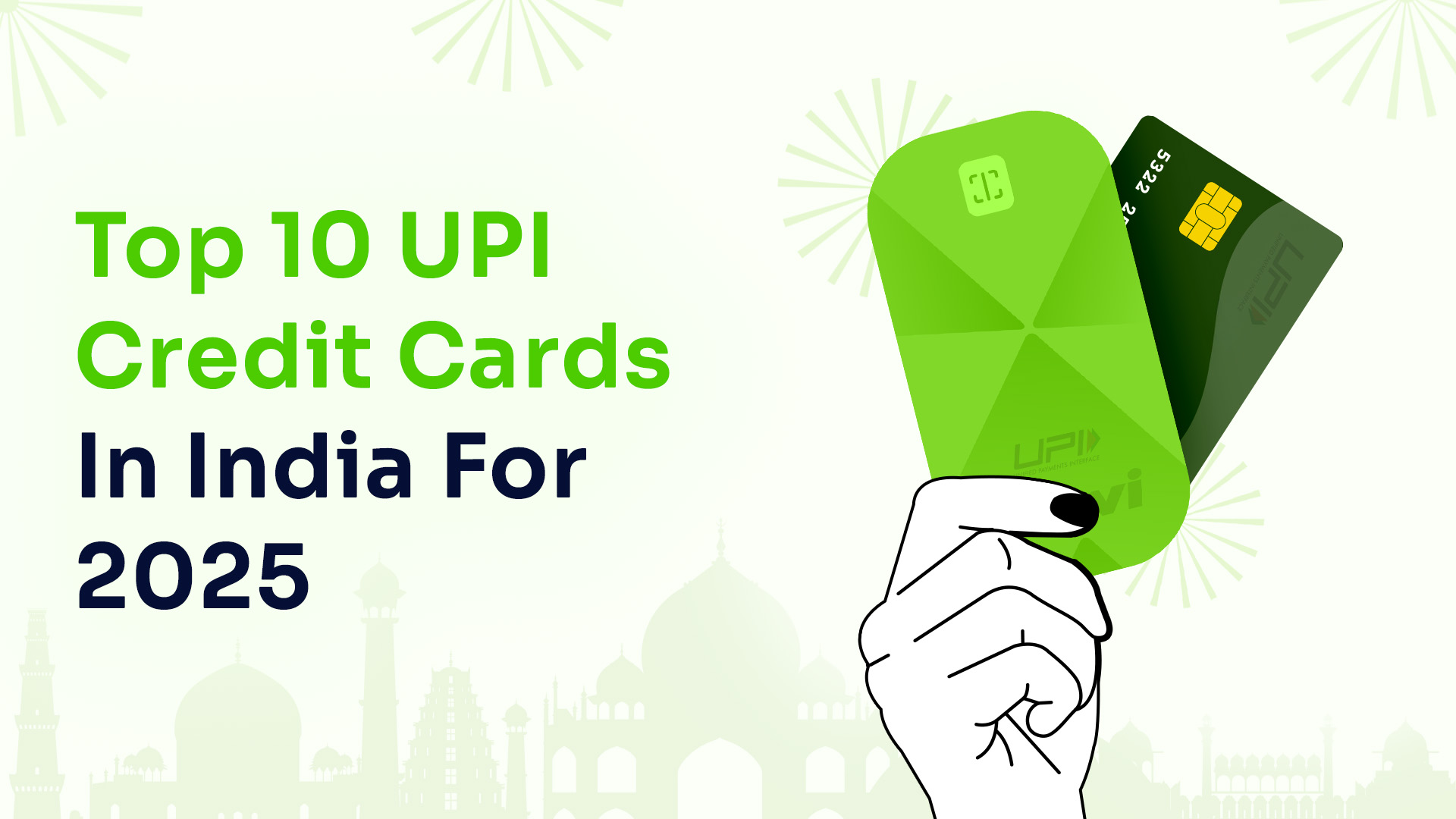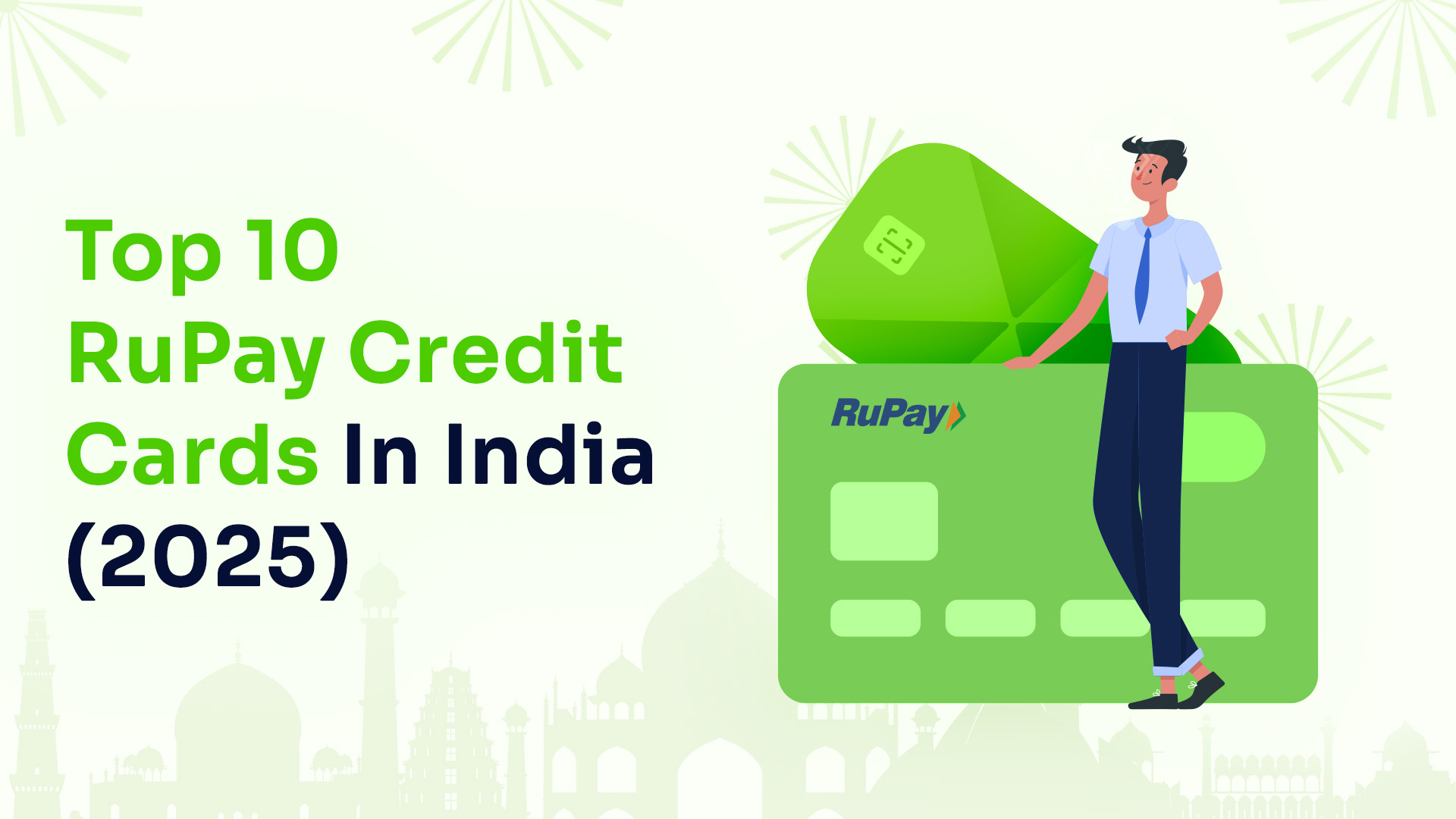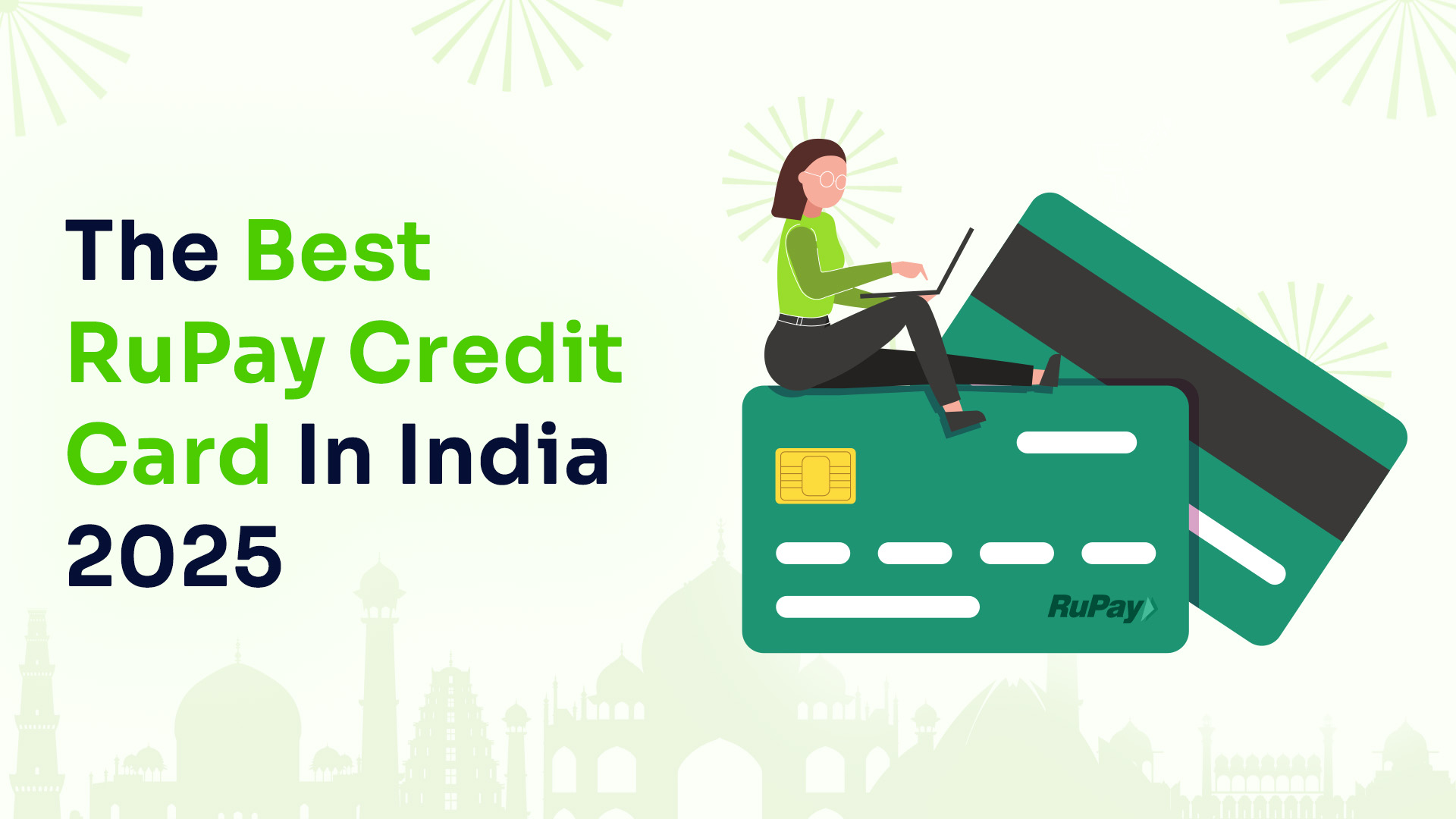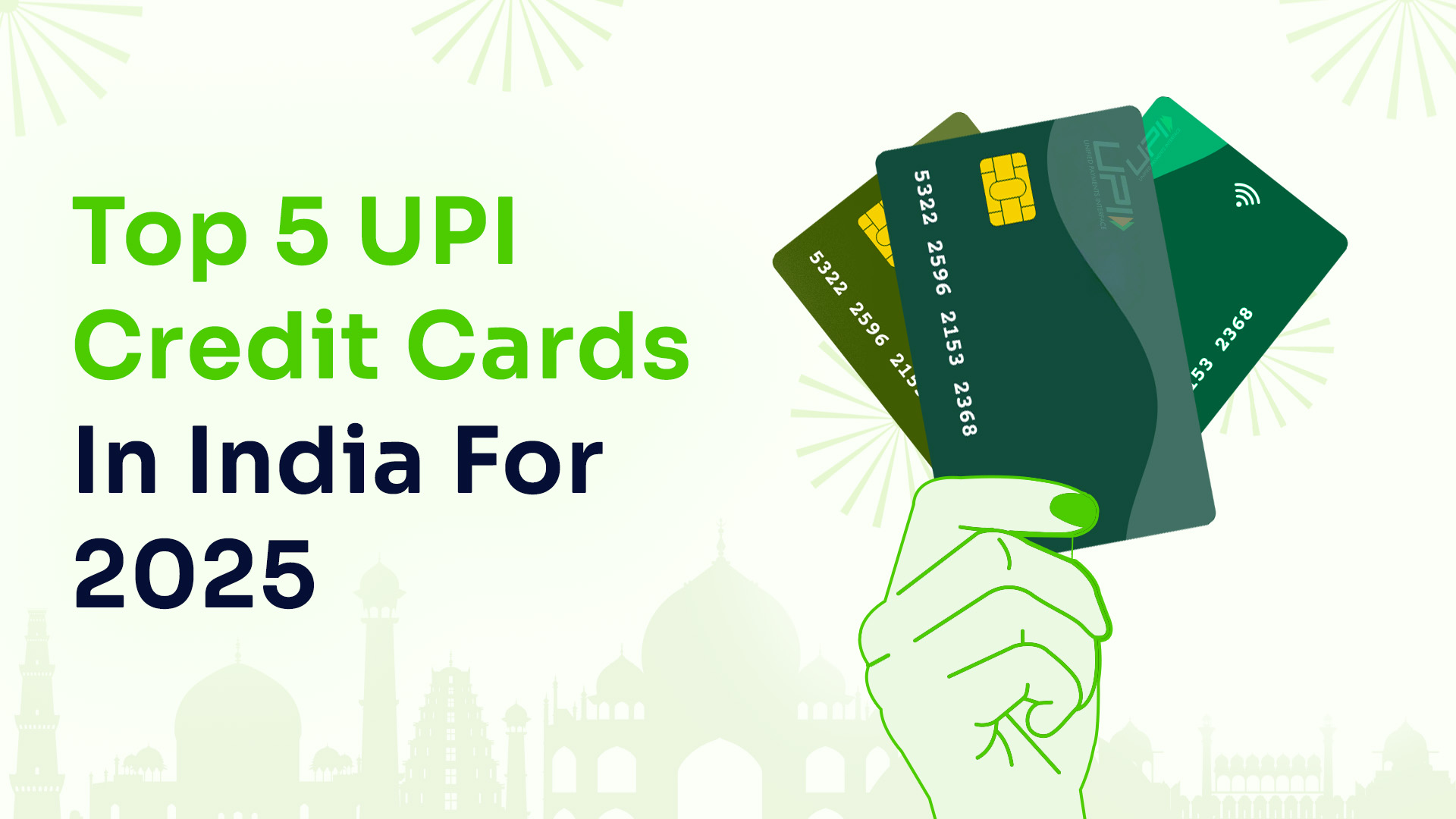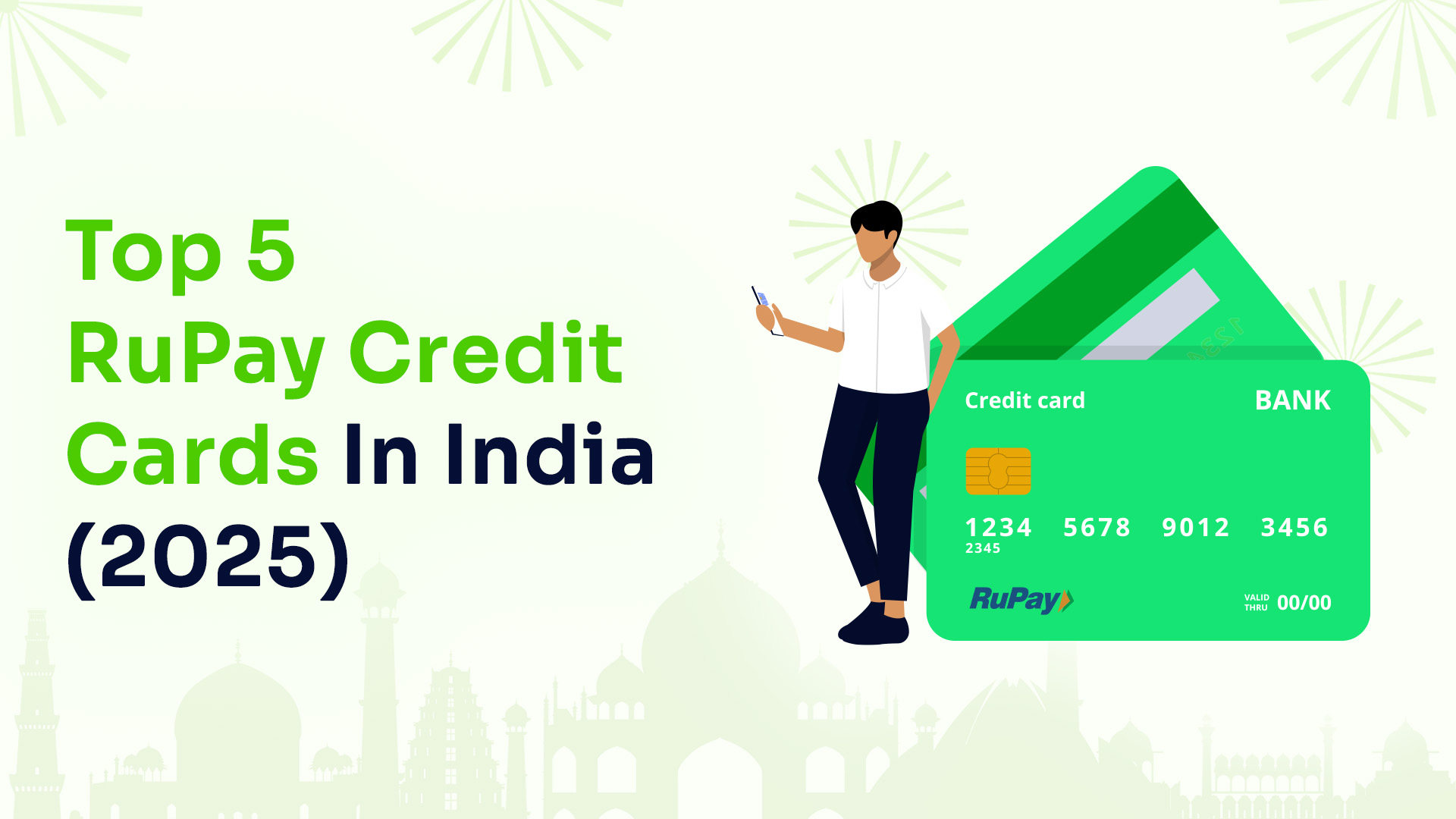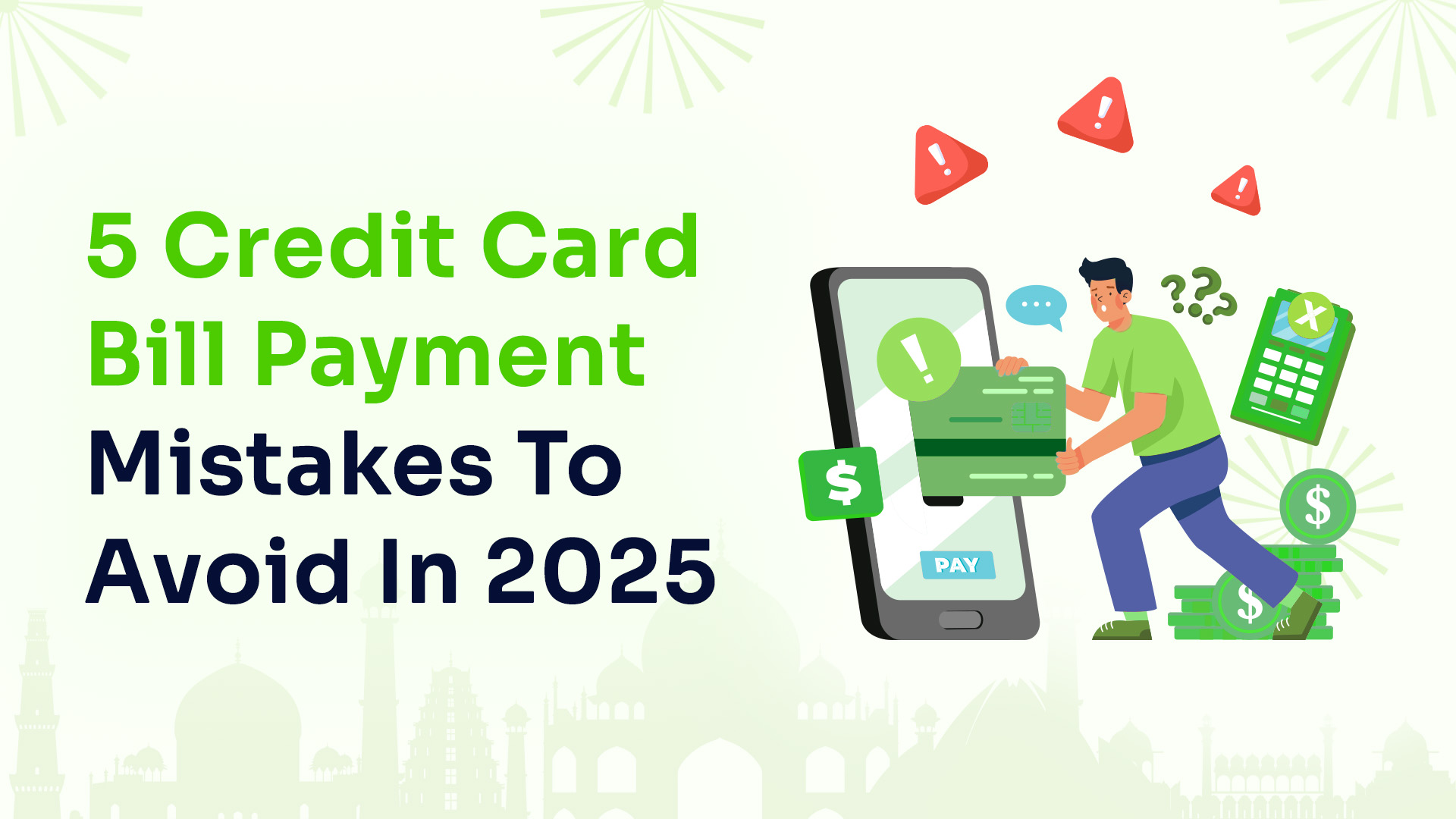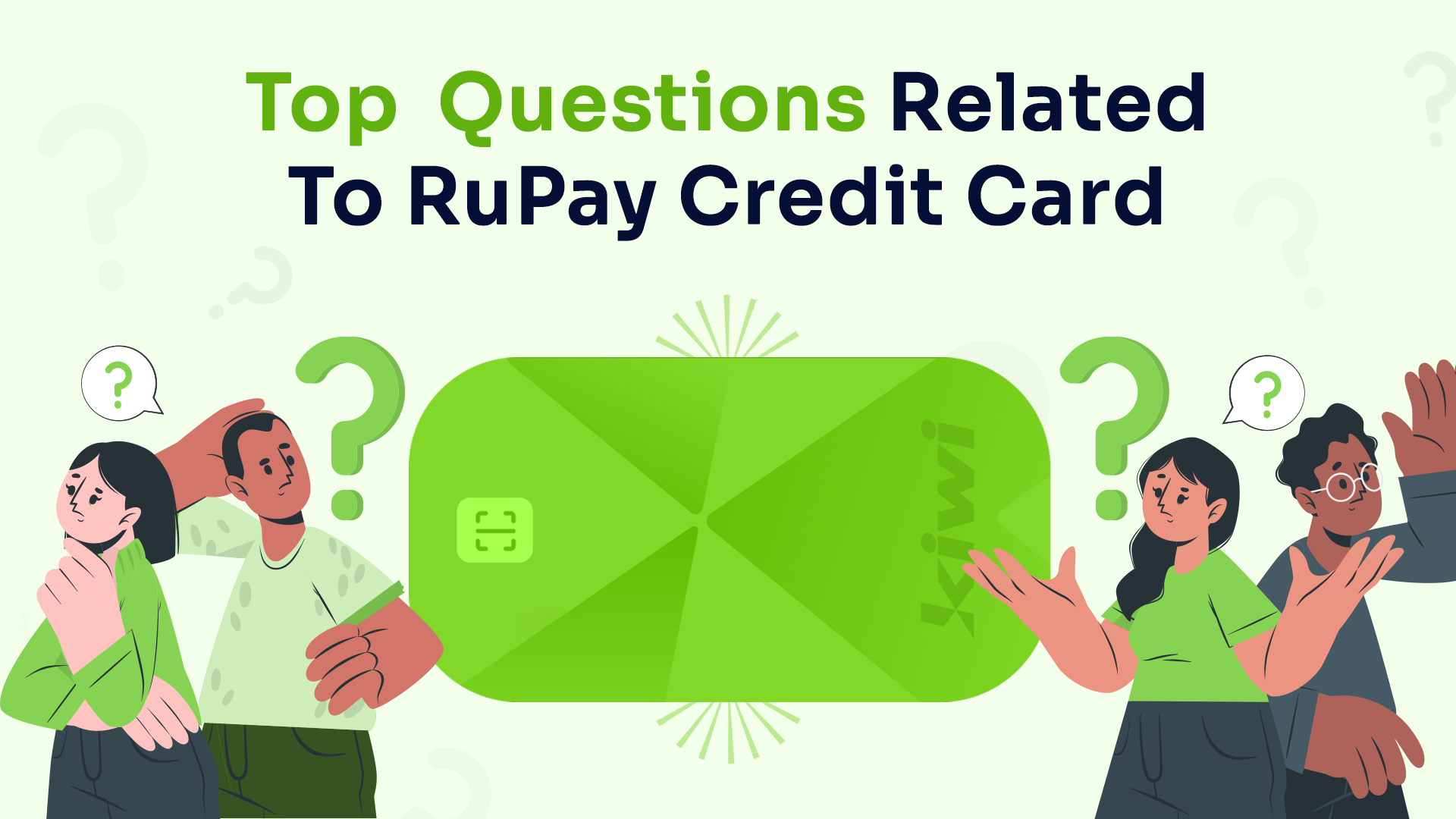
RuPay credit cards have been hogging the headlines in recent times, and justifiably so. Being India’s own home-grown card network, RuPay has been picking up at a great pace in terms of popularity, particularly post-its seamless integration with UPI and growing acceptance on big platforms and merchants. Whether you’re an individual in need of a convenient payment option, a rewards-seeker who loves to spend, or a global traveller wondering about lounge access and perks, you’ve likely heard of a RuPay credit card offer and have some questions about it.
In this blog, we have listed the most asked questions regarding RuPay credit cards and provided the answer to each in easy, simple-to-understand language. If you’re thinking of applying for one or simply curious, this guide will assist you in making a well-informed decision.
Q.1 Can we use RuPay credit card for UPI payments?
The answer is Yes, RuPay credit cards are enabled for UPI payments, which is a significant leap for the digital payment space in India. Before this innovation, UPI (Unified Payments Interface) only accepted payment from savings or current accounts. In 2022 the National Payments Corporation of India (NPCI) enabled the link of credit cards on UPI, starting with the RuPay network.
Effectively, with some of the leading UPI apps you can have your RuPay credit card linked directly, and use it to scan QR codes, pay merchants and perform online payments, like you have also done with a debit card.
Things to note:
- You can use RuPay credit cards on UPI only to pay merchants, as UPI-to-UPI or person-to-person (P2P) transactions are generally not permitted.
- There is no MDR (Merchant Discount Rate), or minimal for a small merchant, which also means an immense opportunity for the business!
- Banks are rolling out progressively so you will want to check with your issuing bank to see if they have UPI linkage on your RuPay credit card.
Q.2 Can we use RuPay credit card for international transactions?
The answer is Yes, you can use RuPay credit cards for international transactions, but they do have some limitations.
NPCI initially designed RuPay as a payment network strictly for domestic transactions, focusing on use within India. However, over the last few years RuPay has spread its wings internationally through the networks of Discover, Diners Club, and JCB (Japan Credit Bureau).
So, if you have a RuPay International credit card (and not just a domestic one), you can use it for:
- You can make in-store purchases at international merchants using RuPay cards wherever Discover, Diners Club, or JCB is accepted.
- Online international purchasing through a website that accepts the RuPay brands with those networks.
However, it is important to understand that:
- RuPay branding is not yet accepted worldwide like Visa or Mastercard.
- There are some smaller and more leaky international merchants which may not recognize it.
- Make sure to inform your issuing bank that you will be traveling abroad to avoid blocking your card due to security checks.
- In addition, foreign exchange markup charges will apply too, but may be lower with RuPay credit cards in some cases unless you go with another credit card option.
If you have a RuPay international credit card, you can shop and spend abroad, but it’s wise to carry another credit card while traveling, just to be safe.
Q.3 How does a RuPay credit card function?
A RuPay credit card is like any other credit card, but instead of using an international payment network. It is made in India with a network that is built completely in India.
When you make a purchase with a RuPay Credit Card, the payment transaction moves through the RuPay payment network managed by the National Payments Corporation of India (NPCI).
Steps:
1. You swipe, tap, or enter your credit card credentials to make a payment.
2. The RuPay network sends your payment request to your issuing bank.
3. Further, your issuing Bank approves or declines the transaction based on your available credit limit.
4. If approved, the amount is charged to your credit card account, which you pay later according to the billing statement.
Q.4 What are the benefits of using a RuPay credit card over Visa or Mastercard?
Our RuPay Credit Cards have several distinct advantages over a standard Visa or Mastercard credit card, especially in India.
Here are some of the benefits:
1. Reduced Transaction Fees: Because RuPay is a domestic network, it charges a lower one-time processing fee for transactions that happen domestically. Reduced charges provide a cost-effective option for banks and merchants as well.
2. Faster Approvals and Transactions – Banks approve and process payments more quickly when domestic transactions are routed within India.
3. Ability to connect to UPI – As of now, RuPay is the only credit card network that can connect with UPI, hugely benefiting those who use QR codes and online payment options in their day to day lives.
4. Exclusive Government Benefits: There are quite a few government welfare schemes, insurance promotions (like insurance in case of accident) and promotional offers are unique to RuPay customers.
5. Greater Acceptance of Local Payments: Sometimes RuPay credit cards are more accpeted by smaller merchants and Government platforms in India.
While Visa and Mastercard will continue to dominate the international scene, RuPay is quickly becoming the domestic card of choice for convenience, cost, and flexibility based on UPI offerings.
Q.5 What are the cashback and rewards programs available on RuPay credit cards?
RuPay credit cards are varied in rewards and cashback programs offered depending on the issuing bank and the type of card. Overall, RuPay itself doesn’t offer cashback or rewards but the banks create offers and attractive programs for their RuPay cardholders.
These offers typically include cashback for utility bill payments, shopping, dining, and travel bookings. In fact, some RuPay credit cards offer extra cashback if the member spends via UPI using the linked RuPay credit card.
What it includes is:
- Cashback: Some RuPay credit cards provide cashback on certain purchases or transactions such as utility bill payments, grocery shopping, eating meals, or booking travel. Furthermore, several credit cards teamed up with UPI provide extra cashback options for members based on their expenses through UPI but paid using their RuPay credit cards.
- Rewards: Included with almost all RuPay credit cards offer rewards accrued for each eligible transaction for something, even if it’s just 1 RuPay reward point for each RuPay credit transaction.
- Discounts with partners: Banks partner with many major brands to provide discounts on Amazon, Flipkart, Swiggy, Zomato, MakeMyTrip, etc. to RuPay cardholders only.
- Festival Offers: Also, during Indian feestivals for example Diwali, Holi, or Freedom Day – some banks partnered with many retailers and other banks offer bonus cashback and additional rewards for selected RuPay credit cardholders.
If you want a more convenient means of earning cashback on UPI-linked RuPay credit cards, Kiwi is a good one to check out. It lets you apply for a RuPay credit card and connect it to UPI directly, allowing you to earn actual cashback on UPI spends. This innovative method brings the best of both worlds the rewards of a credit card and the ease of UPI for users who desire the best of both.
Q.6 Can you can get RuPay credit card without income proof?
To answer that, yes! It’s feasible to secure a RuPay credit card without any income proof, but there are conditions.
Typically, to apply for any credit card, banks require you to provide income documents such as salary slips, bank statements, or Income Tax Returns to check whether you will be able to reimburse the card.
However, if you are not receiving any regular source of income proof, you can still opt for the RuPay credit card via the following means:
- Secured Credit Cards: Several banks offer RuPay secured credit cards against a fixed deposit (FD). You can open a fixed deposit (generally with a minimum deposit of ₹10000 to ₹25000) and, based upon that, the bank will issue you a credit card without needing income proof.
- Entry Level Card or Student Card and Cards for Homemakers: Some banks also have RuPay cards with special features for students, homemakers, or entry level credit card customers with minimal (if any) restrictions.
- Pre-approved Offers. If you have a good relationship with your bank (e.g., you maintain a bank savings account with a significant balance), you may get offered a RuPay credit card that is pre-approved without needing additional documentation.
Although proof of income is not usually required in the above situations, banks will still conduct basic checks (KYC checks include face checks, basic credit checks) before issuing a card.
Q.7 Are there any exclusive lounge access or travel benefits with RuPay credit cards?
And again, yes, quite a few premium RuPay credit cards provide lounge access and travel perks.
RuPay has partnered with multiple domestic and international airport lounges, and the cardholders can avail the free access especially if they have either RuPay Select, RuPay Platinum or RuPay Global cards.
Here’s what you should expect:
- Domestic Airport Lounge Access: Most RuPay Platinum and Select credit cards provide free access to domestic lounges at major airports in India, and typically this benefit would provide 2 – 4 complimentary visits for each quarter.
- International Lounge Access: RuPay Global cards—issued in partnership with Discover, Diners Club, or JCB—offer access to select international airport lounges. However, the number of lounges available is lower compared to those offered by Visa or Mastercard.
- Travel Insurance: Some RuPay credit cards provides bundled complimentary travel insurance which may include accidental death and baggage loss on air travel.
- Discounts on Travel: Cardholders may get special discounts off flights, hotels or holiday packages on RuPay partner platforms.
Q.8 Can I link my RuPay credit card to apps like Paytm, PhonePe, or Google Pay?
And once again, Yes, you can link your RuPay credit card with apps like PhonePe, Paytm, and Google Pay – just for payments made with UPI-based credit cards.
The RBI currently permits only RuPay credit cards to be linked with UPI (Unified Payments Interface.
This allows you to:
- Add your RuPay credit card in UPI apps like PhonePe, Paytm, BHIM, CRED, and Google Pay.
- You can use your RuPay credit card for scan-and-pay; for use at local merchants, for online purchases, and pay all your bills, all via use of UPI.
However, there are a few exceptions to keep in mind:
- You can only link RuPay credit cards issued by banks already enabled with UPI-on-credit functionality. Some of the major banks like HDFC Bank, SBI, PNB, and Union Bank have UPI-on-credit features.
- You cannot use RuPay credit cards for every type of payment—specifically, you can’t transfer money to another individual, and some merchants restrict certain categories.
This is a huge advantage to users who prefer UPI, but want to collect credit benefits like reward points, interest-free periods, and offers.
Q.9 Are there charges and fees associated with RuPay credit cards?
As with any credit card, RuPay credit cards have standard charges and fees, although those fees may vary depending upon the issuing bank and the card type.
Below is a guide to the typical charges you should know about:
- Joining Fee & Annual Fee: Some RuPay cards have no joining fee and have a lifetime free advantage, but if you have a premium RuPay card, there would normally be an annual fee ranging from ₹500 to ₹2,500 + depending upon the card.
- Interest Rate (APR): If you do not pay your total bill by the due date, an interest rate between 30% to 42% per annum will be charged your card.
- Late Payment Fee: If you happen to miss your minimum due payment sometime, you may incur a late payment fee ranging from ₹200 – ₹1,200 depending upon your amount owing up until that time
- Cash Withdrawal Charges: If you transfer cash from your RuPay credit card from an ATM, standard cash advances (usually 2.5% – 3% of the total cash amount withdrawn) as well as the interest will apply from day one.
- Forex Markup fee: In regard to foreign currency, these often apply an additional forex markup fee of up to 2% – 3.5% depending on your card.
Conclusion
So in short, RuPay credit cards have evolved significantly and now include features that not only rival — but in many aspects surpass — those of international networks such as Visa and Mastercard. From facilitating UPI payments and domestic lounge access to cashback, rewards, and secure overseas usage, RuPay has emerged as a savvy and safe choice for the digitally aware Indian user.
Whether you’re a first-time credit card applicant with no income proof or a frequent traveler looking for more benefits, there’s likely a RuPay credit card that fits your lifestyle. With increasing compatibility on popular Indian apps like PhonePe, Paytm, and Google Pay — and strong partnerships with leading Indian banks — RuPay cards are becoming more accessible and powerful than ever.
If you want to enjoy the full power of a RuPay credit card, Kiwi is making it even simpler. Kiwi provides hassle-free issuance of RuPay credit cards with UPI integration, enabling you to avail credit card benefits while making day-to-day payments using UPI — all from your mobile phone. It’s quick, easy, and designed for today’s Indian consumers.
As acceptance in the market increases and innovation keeps pace, it’s evident that India’s own card network is here to stay.
